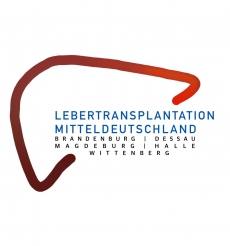Transplant Surgery
Consultation hours & appointments
Mondays,
08:00 Uhr - 10:00 Uhr
Prof. Dr. med. A. Perrakis
Dr. med. J. Arend
Coordinator: Frau Zierau
Tel.: 0391/67-15689
lebertransplantation-mitteldeutschland@med.ovgu.de
Emergency Number (24h): 0391/67-15595
Dear Colleagues,
Particularly in the case of complex diseases, it is important for the benefit of our patients to move closer together and to bundle competencies through cooperation. For this reason, we at Magdeburg University Hospital are very pleased to announce that, with immediate effect, we intend to work in a network of several clinics in the treatment of patients with chronic or acute liver insufficiency and tumor diseases who require transplantation.
As the Liver Transplant Center Central Germany, we represent a central region that has set itself the task of jointly utilizing resources in an intensive exchange. In doing so, we will treat our patients according to the latest scientific findings and efficiently coordinate treatments. Close interaction with our colleagues in private practice as well as in other clinics is very important to us.
The Center "Liver Transplantation Central Germany" is formed by the University Hospital Magdeburg, the University Hospital Halle (Saale) as well as the University Hospital Brandenburg an der Havel and the Municipal Hospital Dessau.
Liver Transplant
The beginning of liver transplantation is closely linked to the development and standardization of visceral and vascular surgery. After extensive animal experimental studies, in 1963 Thomas E. Starzl in Denver, Colorado, USA, was the first to attempt orthotopic liver transplantation in humans.
The patient was a three-year-old child with a lack of bile ducts, a condition known as biliary atresia. This first attempt failed, however, and the child died intraoperatively
due to uncontrollable bleeding. In Germany, the first orthotopic liver transplantation was performed by Alfred Gütgemann (Bonn) in 1969.
In the following years, the results of liver transplantation were rather unfavorable, and only a few centers had the courage to perform such a technically very difficult operation, which at that time had rather an experimental therapeutic character. However, since the end of the seventies of the 20th century, liver transplantation has undergone a rapid clinical development. New, significant findings in the field of transplantation immunology with a more comprehensive understanding of the immunological processes that can cause rejection of the foreign organ have been the basis of modern transplantation medicine. The discovery of new, very potent immunosuppressive drugs, i.e. drugs that prevent rejection after organ transplantation, such as cyclosporine A or FK-506, have in turn played a crucial role in improving outcomes after liver transplantation. The standardization of surgical and anesthetic techniques, the optimization of organ preservation by means of special preservation solutions, clearly defined patient selection and the improvement of postoperative intensive care are the basis for the fact that liver transplantation has developed from a rather experimental procedure in the early years to a clinically recognized routine procedure for the treatment of numerous liver diseases. In the Eurotransplant area (Austria, Belgium, Croatia, the Netherlands, Slovenia, Luxembourg, Germany), approximately 1700 livers are transplanted annually. The success rate is now about 75-80% after 5 years.
Major future developments and important innovations in the field of liver transplantation concern the further improvement of immunosuppression with the long-term goal of tolerance induction. The development of specific monoclonal antibodies that specifically intervene in the cascade of the immune response could make a decisive contribution to this. Another important research focus in transplantation surgery aims at solving the problem of organ shortage. One approach to address this problem is split liver transplantation and, to a limited extent, living donation, as is already routinely performed in kidney transplantation. The transfer of an organ from an animal to a human, on the other hand, has not yet been solved due to as yet unsolved biochemical and immunological problems. The significance that genetic engineering will have for transplantation surgery cannot yet be definitively assessed today.
Close cooperation between surgeons, gastroenterologists, and anesthesiologists is absolutely necessary to perform liver transplantation.
The following specialties or institutes are also needed to perform a liver transplant:
- Surgical intensive therapy
- Radiology
- Blood donation service
- Pathology
- Clinical Laboratory
- Microbiology and Virology
- Nephrology (dialysis)
- Neurology/ Psychiatry
- Immunology
Listing for transplantation is done at the ET center in Leiden (The Netherlands).







